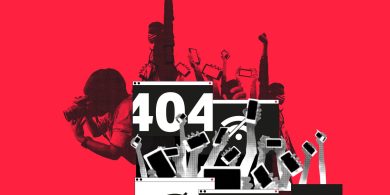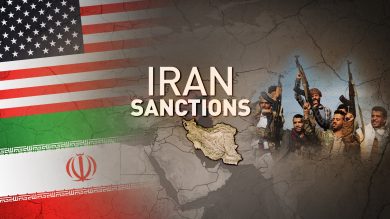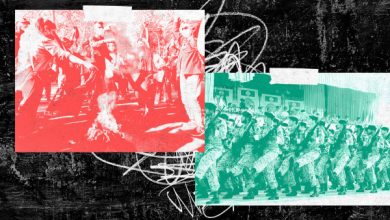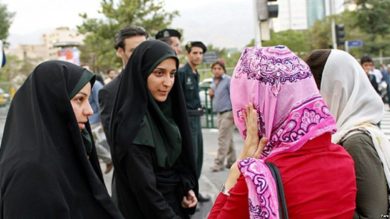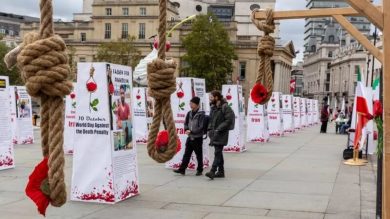The Islamic Revolutionary Guard Corps (IRGC), through its Quds Force, has played a central role in shaping conflicts across the Middle East. By supporting proxy militias and armed groups, the IRGC seeks to expand Iran’s influence and counter perceived threats, particularly from Western powers and regional rivals such as Saudi Arabia and Israel. However, these strategies have led to prolonged instability, fueling sectarian violence, humanitarian crises, and regional insecurity.
This article explores the strategic objectives behind the IRGC’s proxy wars, their impact on regional stability, and the global consequences of Iran’s military interventions.
1. The IRGC’s Proxy Network: Key Players and Objectives
The IRGC’s Quds Force operates a vast network of proxy groups across multiple countries, providing financial support, weapons, and training. These proxies serve both military and political functions, acting as Iran’s forward defense strategy to deter external threats.
A. Hezbollah (Lebanon)
One of the most powerful and influential proxies, Hezbollah, was established in the 1980s with direct support from the IRGC.
• Role:
• Launches attacks on Israel and supports Iranian objectives in Syria.
• Functions as both a military organization and a political party in Lebanon, undermining the country’s sovereignty.
• Impact:
• Repeated military conflicts with Israel, including the 2006 Lebanon War.
• Political instability in Lebanon, as Hezbollah dominates key government sectors.
B. Popular Mobilization Forces (PMF) (Iraq)
In Iraq, the IRGC supports Shia militias under the Popular Mobilization Forces (PMF), which were initially formed to fight ISIS.
• Role:
• These militias have gained significant political and military influence, undermining Iraq’s sovereignty.
• Many have conducted attacks on U.S. military bases and threatened Iraq’s democratic institutions.
C. Houthis (Yemen)
In Yemen, the IRGC backs the Houthi rebels, providing them with missiles and drones to fight the Saudi-led coalition.
• Role:
• The Houthis have launched missile attacks on Saudi Arabia and UAE infrastructure.
• The conflict has led to one of the world’s worst humanitarian crises.
D. Hamas and Palestinian Islamic Jihad (Gaza)
The IRGC funds and arms Hamas and Palestinian Islamic Jihad, militant groups that frequently engage in rocket attacks against Israel.
• Impact:
• Ongoing cycles of violence between Gaza and Israel.
• Escalation of tensions in the Israeli-Palestinian conflict.
2. Strategic Objectives of IRGC Proxy Wars
The IRGC’s use of proxies is driven by several strategic goals:
A. Expanding Iran’s Regional Influence
By establishing and controlling proxy forces, Iran extends its influence across the Middle East, creating a network of allied militias that serve its interests.
B. Deterring External Threats
The IRGC views proxies as a deterrent against Israel, Saudi Arabia, and the United States. These groups can carry out asymmetric attacks without directly implicating Iran.
C. Countering Sunni Power
The IRGC exploits sectarian divisions, supporting Shia militias to challenge the dominance of Sunni-led governments, particularly in Iraq, Syria, and Yemen.
3. Impact on Regional Stability
The IRGC’s proxy wars have had devastating effects on regional stability, prolonging conflicts and exacerbating political divisions.
A. Prolonged Conflicts and Humanitarian Crises
• Syria: The IRGC’s support for Bashar al-Assad has helped prolong the Syrian civil war, resulting in over 500,000 deaths and millions of refugees.
• Yemen: Iranian-backed Houthi forces have escalated the civil war, causing widespread famine and health crises.
B. Rise of Sectarian Violence
The IRGC’s strategy of empowering Shia militias has deepened sectarian divisions, particularly in Iraq and Syria. This has fueled Sunni insurgencies, including the rise of groups like ISIS.
C. Destabilization of Weak States
In countries like Lebanon and Iraq, IRGC-backed militias undermine state authority, making it difficult for governments to maintain sovereignty and security.
4. Global Consequences
The IRGC’s activities have global implications, affecting international security and economic stability.
A. Terrorist Threats
IRGC proxies, such as Hezbollah, have been linked to terrorist operations beyond the Middle East, including attacks in Europe, Africa, and Latin America.
B. Threats to Global Energy Security
The IRGC and its proxies have targeted oil infrastructure and shipping routes in the Persian Gulf, threatening the stability of global energy markets.
C. Increased Military Engagement
Countries like the United States, Israel, and Saudi Arabia have conducted military operations to counter IRGC-backed militias, leading to heightened tensions and the risk of regional war.
5. International Responses and Countermeasures
A. Sanctions and Diplomatic Pressure
Many countries have imposed sanctions on the IRGC and its affiliates to disrupt their financial networks.
• The U.S. has designated the IRGC as a terrorist organization, limiting its access to international banking and trade.
• European countries have imposed targeted sanctions, though calls for a full terrorist designation continue.
B. Military and Cyber Operations
Countries like Israel and the U.S. have launched airstrikes on IRGC assets in Syria and Iraq. Additionally, cyberattacks have targeted Iran’s military infrastructure.
C. Strengthening Regional Alliances
Regional coalitions, such as the Abraham Accords, aim to counter Iran’s influence by promoting security cooperation between Israel and Arab Gulf states.
6. The Path Forward
Addressing the destabilizing impact of the IRGC’s proxy wars requires multilateral cooperation and a comprehensive strategy.
A. Expanding Sanctions Enforcement
Sanctions must target the financial networks that sustain IRGC proxies, including front companies and money laundering operations.
B. Supporting Regional Stability
Efforts to promote diplomatic solutions in conflict zones like Yemen and Syria are essential to reduce the IRGC’s influence.
C. Empowering Civil Society
Support for human rights organizations, independent media, and activist networks can help counter the IRGC’s propaganda and repression.
Conclusion
The IRGC’s proxy wars have had a profound impact on regional stability, fueling conflicts, and threatening global security. To counter these destabilizing activities, the international community must adopt a coordinated approach that includes sanctions, military countermeasures, and diplomatic pressure. Supporting the voices of those affected by these conflicts is crucial to achieving peace and justice in the Middle East.
Join Our Newsletter!
Stay informed with the latest updates, news, and ways to take action in the fight for justice and global security. Sign up now to get updates delivered straight to your inbox!

